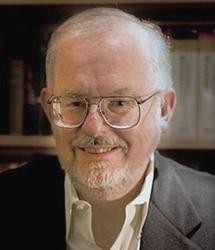 |
|
| Greg Bear | |
Science fiction author Greg Bear, who wrote more than 50 books and "played a leading role in defining how global audiences saw future final frontiers," died November 19, GeekWire reported. He was 71. Bear had his first short story published in 1967 and began writing full time in 1975. His works include multiple award-winning series, a Star Trek novel and a Star Wars novel, as well as a trilogy set in the Halo video-game universe.
Bear won Nebulas for novels Moving Mars and Darwin's Radio, as well as three works of short fiction, two of which--"Blood Music" and "Tangents"--also won Hugos. In 2006, he received the Robert A. Heinlein Award. His final novel, The Unfinished Land, was published last year.
Bear's influence on the science-fiction community "extended far beyond the written page," GeekWire noted. He was one of the founders of San Diego's Comic-Con International and served for two years as president of the Science Fiction Writers of America (now the Science Fiction and Fantasy Writers Association).
Current SFWA president Jeffe Kennedy said, "When I took over as a newbie president of SFWA, past-president Greg Bear was unfailingly gracious to and supportive of me. I loved his work and admired him as an author, so to discover what a truly kind person he was meant so much. He will be greatly missed by SFWA and the larger community."
After moving to the Seattle, Wash., area in 1987, he became a member of the team that created and organized the Washington State Centennial Time Capsule. GeekWire contributor Frank Catalano recalled introducing Bear to the late software billionaire Paul Allen--a contact that helped lead to the creation of the Science Fiction Museum and Hall of Fame, now part of Seattle's Museum of Pop Culture.
Author Harry Turtledove tweeted: "Greg the man was a friend. Greg the writer was quite remarkable."
Bear was best known "as a writer of 'hard' science fiction--stories that are grounded in the improbable plausibilities of science and technology," Geekwire noted. "For example, in Strength of Stones, a novel first published in 1982, Bear laid out a world in which cities that are governed by artificial intelligence rise up against their human creators. And in his War Dogs Trilogy, Bear gave leading roles to private space ventures like Elon Musk's SpaceX."
In a tribute, author John Scalzi wrote: "What I will add here is the personal observation that in my experience of him, he was kind and decent, and treated me as a peer from a very early stage in my career, which is something I noted and appreciated, and tried to emulate in turn. I have condolences and care for Astrid and their children, and all who knew him, either personally or through his work. He will be missed. He is missed, already."

